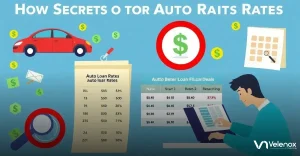Student loan repayment can seem overwhelming, but with the right strategies, you can regain control of your financial future.
It’s crucial to understand your options, such as repayment plans and refinancing, to effectively manage the debt that comes with education.
Understanding Student Loan Repayment
Understanding student loan repayment is essential for anyone with student debt.
When you borrow money for school, you agree to pay it back over time.
ADVERTISEMENT
This process can include different options and plans, depending on your loan type and financial situation.
There are many choices when it comes to repayment. Some plans are based on your income, meaning you pay less if you earn less.
Others have fixed payments that stay the same each month. It’s important to know these options so you can choose the best one for you.
Being aware of the terms of your loans can help you avoid mistakes. If you miss a payment, it can lead to bigger problems down the road.
Take the time to understand your loans and make a plan. This way, you can manage your debt and work towards a better financial future.
Types of Student Loans
There are different types of student loans, and knowing about them is key to making smart choices. The two main categories are federal loans and private loans.
Federal loans are offered by the government and usually have lower interest rates. They also come with benefits like flexible repayment plans.
Within federal loans, you can find several options. For example, Direct Subsidized Loans are for students with financial need.
These loans don’t charge interest while you’re in school.
On the other hand, Direct Unsubsidized Loans are available to all students, but they start accruing interest right away.
Private loans are offered by banks or other lenders. They may have higher interest rates and less favorable terms than federal loans.
It’s important to carefully compare these options, as private loans can affect your repayment later.
Always aim to borrow wisely, focusing on the type that best fits your education and future plans.
Choosing the Right Repayment Plan
Choosing the right repayment plan for your student loans can make a big difference in your financial journey.
There are several plans to consider, each with its own benefits.
For example, some plans are based on your income, which means your payments adjust based on how much money you earn.
This can be very helpful if you’re just starting out in your career and may not be making a lot of money yet.
Another option is to choose a standard repayment plan. This plan has fixed monthly payments and allows you to pay off your loans in ten years.
While the payments may be higher, you will pay less interest over time. It’s great for those who want to get their loans done quickly and avoid extra costs.
It’s important to think about your own financial situation when making this choice. Consider your current expenses and future income.
Don’t rush your decision; take the time to research and find what works best for you.
The right repayment plan will help you tackle your student loans more effectively and give you peace of mind.
Tips for Managing Loan Payments

Managing loan payments can feel challenging, but with the right student loan repayment strategies, it becomes easier.
First, set up a budget that includes your loan payments.
This way, you can see where your money goes each month and ensure you always have enough to cover your student loans.
Keeping track of your finances is a great way to stay organized and avoid surprise expenses.
Another useful tip is to automate your payments. Many lenders offer the option to set up automatic withdrawals from your bank account.
This means your payments will always be on time, helping you avoid late fees.
Plus, some lenders offer a small interest rate reduction if you sign up for autopay.
Lastly, don’t hesitate to reach out to your lender if you’re having trouble making payments.
They can work with you to find a solution, like switching repayment plans or putting your loans into deferment.
Communicating openly with your lender can save you from missed payments and added stress.
Consequences of Defaulting on Student Loans
The consequences of defaulting on student loans can be serious and far-reaching.
When a borrower fails to make payments for an extended period, their loans go into default.
This can damage their credit score significantly, making it harder to get credit for a car, house, or even a credit card.
Additionally, defaulting can lead to aggressive collection tactics.
Lenders may take steps like wage garnishment, where a portion of your paycheck is taken to pay the debt.
In some cases, loans can be sent to collections, which adds extra fees and stress to your financial situation.
It’s essential to understand that defaulting can also affect your tax refunds and federal benefits.
The government can withhold your tax returns to pay off your loans.
This can create a domino effect on your finances, making it crucial to stay on top of your payments and seek help if you’re struggling.
Refinancing and Consolidation Options
When dealing with your student loans, refinancing and consolidation options can be valuable tools.
Refinancing allows you to take out a new loan with a lower interest rate to pay off your existing loans.
This can save you money in the long run because you’ll have smaller monthly payments and pay less overall in interest.
On the other hand, consolidation combines multiple loans into one. This can simplify your payments, as you only have to remember one due date each month.
It can also make you eligible for certain repayment plans and forgiveness programs that are not available with all loans.
However, before choosing to refinance or consolidate, it’s important to understand the pros and cons.
While refinancing can lower your interest rate, it may result in losing federal benefits, such as income-driven repayment plans or loan forgiveness.
Always do your research and consider your options carefully before making a decision.
Federal vs. Private Student Loans
Understanding the difference between federal and private student loans is crucial for borrowers.
Federal loans are funded by the government, which means they usually come with fixed interest rates and flexible repayment options.
These loans also offer protections, such as deferment, forbearance, and eligibility for loan forgiveness programs.
On the other hand, private loans are offered by banks or financial institutions. They often have higher interest rates and vary widely in terms of repayment options.
Interest rates for private loans can be fixed or variable, but they generally depend on the borrower’s credit score and financial situation.
This makes them riskier for students who may not have a strong credit history.
Choosing the right type of loan can affect your financial future significantly.
While federal loans tend to be safer and more forgiving, private loans may be necessary if you need more funds beyond what federal aid offers.
Always weigh the pros and cons before deciding, and make sure to explore all your options.
Resources for Student Loan Repayers

If you are looking for resources for student loan repayers, there are many options available that can help you manage your payments better.
Websites like the Federal Student Aid website are great starting points.
They provide detailed information about federal loans, repayment plans, and even forgiveness programs available to borrowers.
Another valuable resource is your loan servicer. They can assist you with understanding your loan details and options.
Many servicers offer tools to help you calculate payments and set up automatic deductions to ensure you never miss a due date.
Don’t hesitate to reach out to them with any questions you may have.
You can also find support through local or online support groups and financial advisors.
Many organizations focus on student loan assistance and can offer personalized advice tailored to your needs.
Accessing these resources can make managing your loans feel less overwhelming and help you stay on track.
It seems you have not provided a specific subtitle for the content.
However, if you were looking for tips on student loan repayment, it’s essential to start by understanding the repayment plans available.
Each plan has different features that can affect your monthly payments and overall financial situation.
Another crucial aspect is keeping track of your loan details, like interest rates and due dates.
Setting reminders can help you avoid missing payments, which can lead to extra fees.
It’s also a good idea to communicate regularly with your loan servicer to stay informed about your options.
Finally, consider seeking financial advice if you’re struggling.
Many organizations and advisors specialize in student loans, offering resources and support to help you manage your debt effectively.
Educating yourself on these topics can empower you to make informed decisions regarding your loans.





